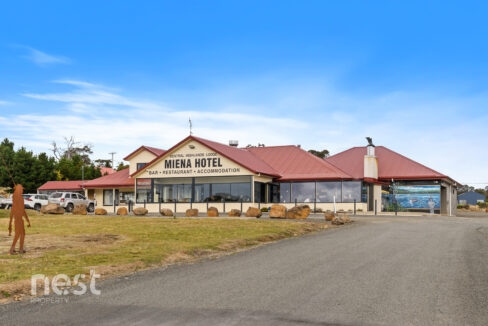

There are several important factors to consider when looking for commercial space for rent. One of the first things to think about is location. The location of a commercial space can have a big impact on the success of your business. You want to make sure that the space is easily accessible to your customers and employees, and that it is in an area with good visibility.
Another important factor to consider is size. You need to make sure that the space you are considering is big enough to accommodate your business needs, but not so large that you are paying for more space than you actually need. It's also important to consider the layout of the space and whether it will work well for your specific business operations.
Cost is another key factor when looking for commercial space. You need to make sure that the rent fits within your budget, but you also need to consider other costs such as utilities, maintenance, and any additional fees that may be associated with the space.
Finally, it's important to consider the terms of the lease. Make sure you understand all of the terms and conditions before signing a lease agreement, and be aware of any restrictions or limitations that may apply.
Overall, finding the right commercial space for rent requires careful consideration of these factors in order to ensure that you find a space that meets your needs and helps your business thrive.
Entering the commercial rental market requires careful consideration and informed decision-making. Whether you are looking for office space, retail locations, or industrial facilities, understanding the dynamics of commercial rentals can greatly enhance your chances of securing the right property for your business needs.
One of the first steps in navigating commercial rentals is to clearly define your requirements. Consider factors such as the size of the space needed, the layout that will best serve your operations, and the location that aligns with your business strategy. For instance, retail businesses may benefit from high foot traffic areas, while offices might prioritize accessibility for employees and clients. Establishing these criteria upfront will streamline your search and help you focus on properties that truly meet your needs.
Researching the local commercial real estate market is also crucial. Understanding current rental rates in your desired area allows you to set a realistic budget and negotiate effectively. Additionally, awareness of market trends—such as vacancy rates and demand for certain types of spaces—can provide insight into potential challenges and opportunities. Engaging with local commercial real estate agents can provide valuable market knowledge and access to listings that may not be publicly available.
Another important aspect of commercial rentals is understanding the terms of the lease agreement. Commercial leases can be complex, with various clauses that can significantly impact your business. It's essential to thoroughly review the lease terms, including rent escalation clauses, maintenance responsibilities, and renewal options. Consulting with a legal professional experienced in commercial real estate can help ensure that you understand your rights and obligations before signing.
Building relationships with landlords and property managers can also play a significant role in the success of your commercial rental experience. Open communication can facilitate negotiations and help address concerns quickly. A positive relationship can lead to greater flexibility in lease terms and support during your tenancy, making it easier to navigate any issues that arise.
In summary, successfully navigating the commercial rental market involves a combination of thorough research, clear communication, and informed decision-making. By understanding your specific needs, staying informed about market trends, and carefully reviewing lease agreements, you can secure a commercial space that supports your business objectives and fosters long-term growth. With the right approach, your venture into the commercial rental market can be a positive and rewarding experience.

Hiring a professional property management company can offer a wide range of benefits for property owners.. These companies are experts in managing all aspects of rental properties, from finding tenants to handling maintenance issues.
Posted by on 2024-11-06

Technology has become an integral part of modern property management, transforming the way properties are managed and adding efficiency to the overall process.. With the advent of advanced software and digital tools, property managers are now able to streamline their tasks, improve communication with tenants and owners, and optimize the maintenance of properties. One of the key roles of technology in property management is in improving communication.
Posted by on 2024-11-06

As a property manager, one has a multitude of key responsibilities that are crucial to the success of managing properties effectively.. Firstly, it is important to ensure that all tenants are provided with a safe and habitable living environment.
Posted by on 2024-11-06

Property management is the process of overseeing, operating, and maintaining real estate properties on behalf of the owner.. This includes a wide range of responsibilities such as collecting rent, handling maintenance and repairs, finding tenants, and ensuring that the property complies with local laws and regulations. A property manager acts as a middleman between the property owner and tenants.
Posted by on 2024-11-06
Commercial rentals provide numerous advantages for businesses seeking to establish or expand their operations. Choosing to rent commercial space instead of purchasing property can often be a more strategic financial decision, allowing businesses to allocate resources more effectively and focus on growth rather than the burdens of property ownership.
One of the primary benefits of commercial rentals is flexibility. Leasing commercial space allows businesses to adapt quickly to changing market conditions and operational needs. Whether you're starting a new venture, expanding an existing business, or testing a new market, renting provides the agility to scale operations up or down without the long-term commitment and financial implications of owning a property. This flexibility is particularly beneficial in dynamic industries where growth trajectories can fluctuate significantly.
Additionally, renting commercial space often requires a lower initial investment compared to purchasing. This can free up capital that businesses can use for other essential expenditures, such as hiring staff, investing in inventory, or marketing efforts. Many commercial leases also come with built-in amenities or shared facilities, such as reception areas, conference rooms, and parking, which can further reduce costs associated with outfitting a new location.
Commercial rentals also provide businesses access to prime locations that may otherwise be financially out of reach. High-traffic retail spaces or prestigious office addresses can significantly enhance visibility and prestige, attracting customers and clients. Being situated in a desirable area can positively impact your brand image and create opportunities for networking and collaboration with other businesses.
Another key advantage is the ability to negotiate lease terms that suit your business needs. Many landlords are willing to work with tenants to create agreements that accommodate specific operational requirements. This can include customizing the space to fit your brand, adjusting lease lengths based on your business cycle, or negotiating rent concessions during the initial months of occupancy.
Moreover, commercial rentals can provide an avenue for businesses to maintain a diverse portfolio. For companies looking to expand their reach or test new products, leasing properties in different locations can be an effective strategy. This allows for market exploration without the significant financial risks associated with buying multiple properties.
In conclusion, commercial rentals offer a wealth of benefits for businesses, from flexibility and lower initial investment to prime locations and customizable lease agreements. By strategically leveraging these advantages, businesses can position themselves for growth and success in a competitive market. Engaging with experienced commercial real estate professionals can help navigate the complexities of rental agreements and ensure that you find a space that meets your operational needs and aligns with your long-term goals.

If you need to terminate your lease early, you may be required to pay a penalty fee or forfeit your security deposit. Its important to review your lease agreement for specific terms regarding early termination.